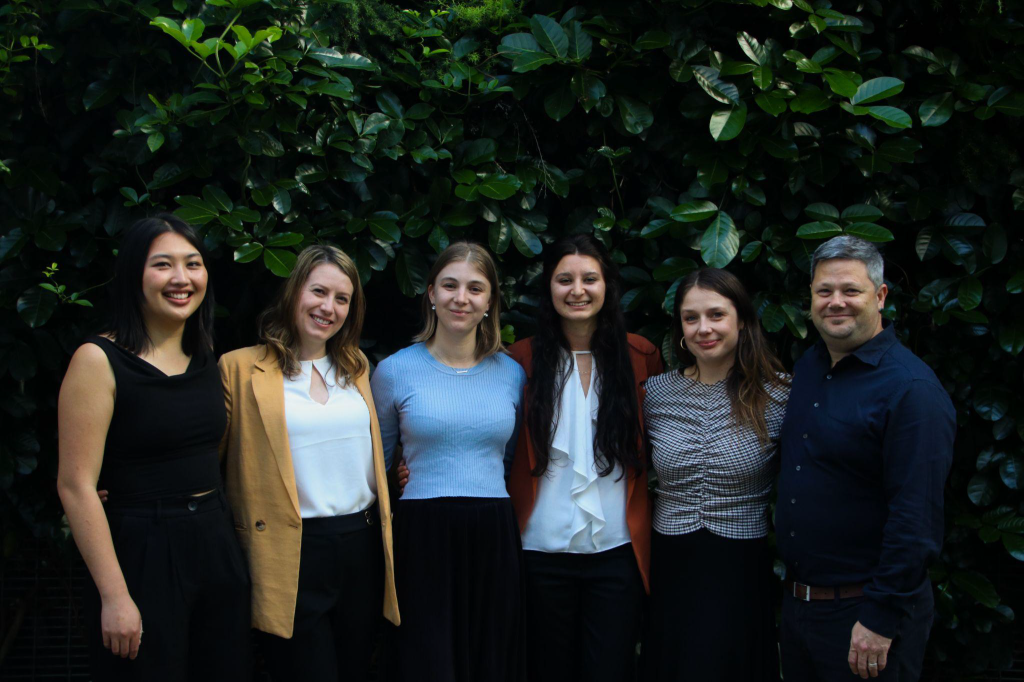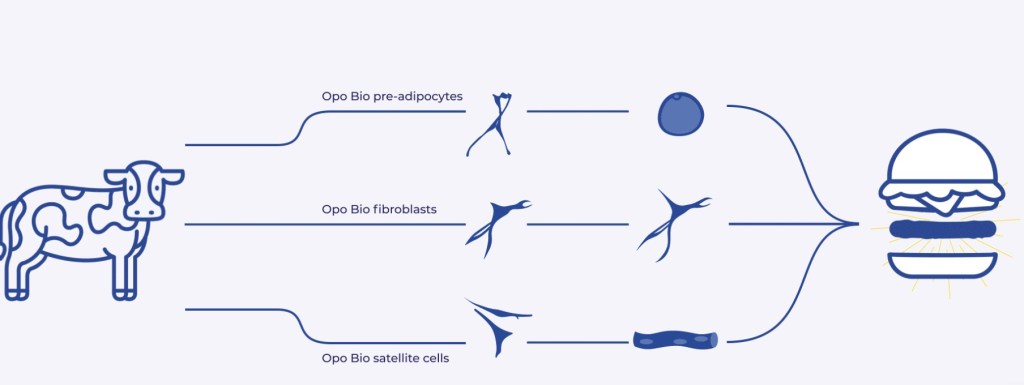Opo Bio has emerged from stealth mode after securing NZ$1.5m in a seed raise, making it New Zealand’s first cultivated meat company.
The company, which was founded in July 2022, is developing cultivated meat ingredients, with its first product, primary bovine muscle cells (called Opo-Moo) now available to researchers.
The founding team are leaders in cultivated meat. Dr Laura Domigan began working on cultivated meat in 2012 with Professor David Kaplan at Tufts University, while Dr Olivia Ogilvie has been working on the policy and regulatory aspects of the technology during her postdoc. The final founder, Dr Vaughan Feisst, is transferring his knowledge and experience from human therapeutics to producing cultivated meat.
Cultivated meat production requires four key technology areas – the cell line, the cell culture media, the growth factors and the scaffolds – all of which are placed in a bioreactor.

According to Ogilvie, the cell lines are the ‘seeds’ that grow meat, and they are extremely difficult and time consuming to isolate. She said the absence of commercially available cell lines in the cultivated meat sector is holding both researchers and manufacturers back.
“In our academic program, we found that there was just a lack of cells and cell lines available for the field to buy. When we were trying to get hold of them, there were just no options. From an academic perspective, this was annoying because we couldn’t do our research; we had to isolate the primary cells and develop all those methods, which is a lot of work.
“We started talking to commercial companies and they were having the same issues – the cell line development programs they had to establish were really big and very time consuming, and they couldn’t do anything without cells,” Ogilvie told Future Alternative.

Opo Bio’s cell lines are produced from high health status New Zealand livestock, and the company is initially focusing on cell lines that form cow and pig muscle, fat and connective tissue.
While initially available for researchers only, Ogilvie said the company’s products will eventually help large scale cultivated meat companies get to market quicker.
“We also think that if we focus solely on cell lines, we can produce the best technically performing cell lines. So we want to be producing cells that grow the fastest, or are the most high yielding, or have the best nutritional quality or produce the least waste – whatever becomes more important as the industry matures,” she said.
Opo Bio expects to have cell lines available to cultivated meat companies in 2023. These will bovine cell lines capable of serum-free growth in suspension bioreactors.
Its $1.5m seed round was led by Matū Karihi, syndicated with The University of Auckland Inventors’ Fund, Booster Innovation Fund and angel investors.
To stay up-to-date on the latest industry headlines, sign up to Future Alternative’s enewsletter.
Posted on:


